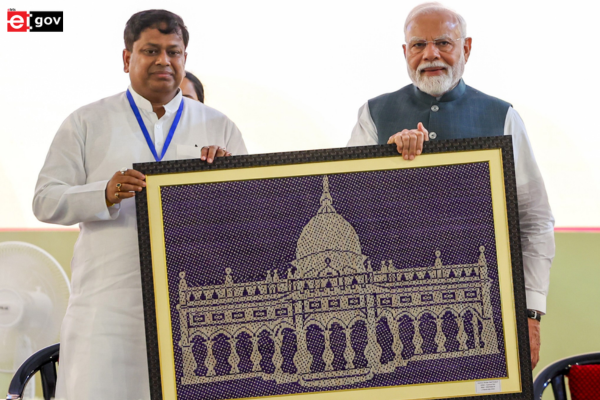
Global technology powerhouses Apple and Samsung are reportedly revising their international production strategies, with indications pointing to India emerging as a pivotal export hub for the US market, according to recent media reports. This strategic realignment is driven by the need to mitigate the impact of steep US tariffs imposed on goods from China and Vietnam during the Trump administration. The move strongly supports India’s ‘Make in India’ initiative, potentially transforming the nation’s role in the global electronics supply chain.
The transition, however, comes with its challenges. The report highlights that Apple faces significant logistical hurdles in recalibrating its global production, with major customs and regulatory efforts required. Despite this, efforts are reportedly underway to address these issues urgently, ensuring that supplies to the US remain competitive. Apple, the world’s largest electronics company by revenue, has already engaged its Indian manufacturing partners – including units of Taiwan’s Foxconn and the domestic Tata Group, which acquired assets from Wistron and Pegatron – to ship iPhones directly to the United States. This strategic move coincides with the imposition of hefty reciprocal tariffs: 54 percent on certain Chinese goods and 46 percent on those from Vietnam, in contrast to a lower 26 percent tariff on Indian exports.

In response, Apple is planning a significant reduction in its reliance on Chinese factories for US-bound goods. A top industry official explained that India’s factories will increasingly focus on US shipments, while production for markets in Europe, Latin America, and Asia may continue from China. This could represent a substantial leap in iPhone production in India, potentially leading to major expansion if the strategy is sustained. Further growth in India appears likely if Apple avoids developing new production centers in regions with even lower US tariffs, such as the UAE, Saudi Arabia, or Brazil, where tariffs hover around 10 percent.

For Samsung, the situation is similarly critical. The company’s extensive manufacturing base in Vietnam, responsible for approximately USD 55 billion in exports, might temporarily shift production to India for US-bound goods. An official source noted that exporting from India at a 26 percent duty is more favorable compared to the higher tariffs affecting Vietnamese exports. While this may be a temporary measure until the Vietnamese government negotiates tariff adjustments with the US, it underscores the growing importance of Make in India. Samsung’s Noida facility, which currently produces smartphones including high-end models, is set to play a key role in this strategic pivot.


Any substantial shift by either company would necessitate major investments from both Foxconn and the Tata Group, potentially causing iPhone shipments from India to the US to grow significantly beyond the current estimate of $10 billion this fiscal year. Sources indicate that Indian officials involved in negotiating Bilateral Trade Agreements with the US are aware of these dynamics and are poised to leverage the situation to advance India’s global manufacturing ambitions. Despite the logistical complexities, the potential tariff advantages appear to be prompting a strategic reassessment by major electronics companies, with India standing to gain significantly if these production shifts materialize.
Be a part of Elets Collaborative Initiatives. Join Us for Upcoming Events and explore business opportunities. Like us on Facebook , connect with us on LinkedIn and follow us on Twitter, Instagram.
"Exciting news! Elets technomedia is now on WhatsApp Channels Subscribe today by clicking the link and stay updated with the latest insights!" Click here!












